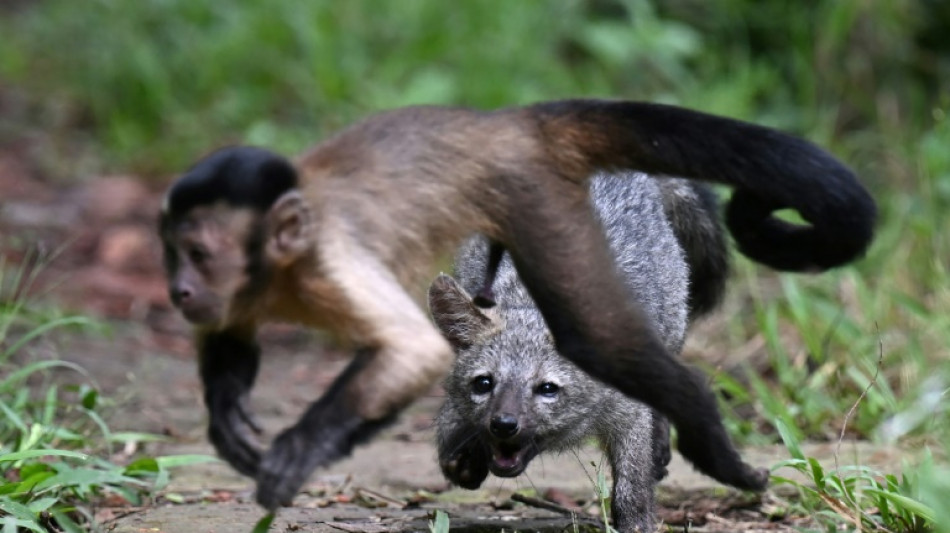
-
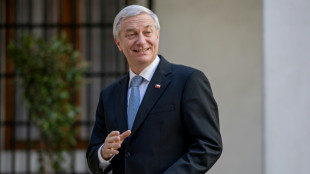 Chile president picks Pinochet lawyers as ministers of human rights, defense
Chile president picks Pinochet lawyers as ministers of human rights, defense
-
Osaka says 'I'm a little strange' after Melbourne fashion statement

-
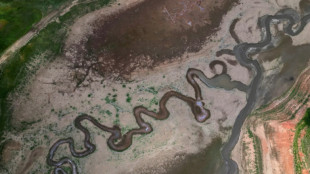 UN report declares global state of 'water bankruptcy'
UN report declares global state of 'water bankruptcy'
-
Trump heads for Davos maelstrom over Greenland
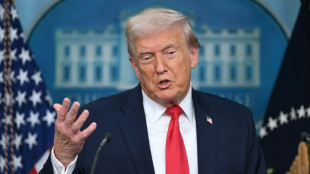
-
 Ukraine's Oliynykova wants Russian, Belarusian players banned from tennis
Ukraine's Oliynykova wants Russian, Belarusian players banned from tennis
-
Kasatkina cannot wait to be back after outpouring of Melbourne support

-
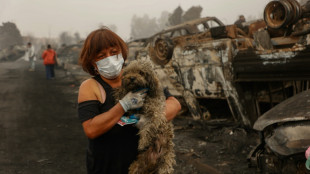 Chile blaze victims plead for help from razed neighborhoods
Chile blaze victims plead for help from razed neighborhoods
-
Russian minister visits Cuba as Trump ramps up pressure on Havana

-
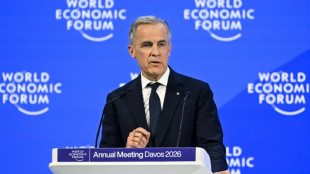 World order in 'midst of a rupture': Canada PM Carney tells Davos
World order in 'midst of a rupture': Canada PM Carney tells Davos
-
Senegal's 'historic' AFCON champs honoured with parade, presidential praise

-
 Audi unveil new car for 2026 Formula One season
Audi unveil new car for 2026 Formula One season
-
Man City humiliated, holders PSG stumble, Arsenal remain perfect

-
 Vinicius, Real Madrid need 'love' not whistles: Bellingham
Vinicius, Real Madrid need 'love' not whistles: Bellingham
-
Late Suarez winner stops Champions League holders PSG in Lisbon

-
 Frank seeks Spurs 'momentum' after beating Dortmund
Frank seeks Spurs 'momentum' after beating Dortmund
-
Jesus' 'dream' brace at Inter fires Arsenal into Champions League last 16

-
 US regulator appeals Meta's court victory in monopoly case
US regulator appeals Meta's court victory in monopoly case
-
Netflix shares fall as revenue appears to stall

-
 Tottenham beat 10-man Dortmund to hand Frank stay of execution
Tottenham beat 10-man Dortmund to hand Frank stay of execution
-
Mbappe, Vinicius help Real Madrid thrash Monaco in Champions League

-
 Men's Fashion Week kicks off in Paris with Louis Vuitton show
Men's Fashion Week kicks off in Paris with Louis Vuitton show
-
Jesus fires Arsenal past Inter and into Champions League last 16

-
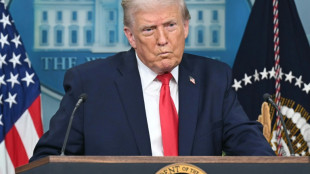 Muted anniversary: Trump marks first year back with grievances
Muted anniversary: Trump marks first year back with grievances
-
Humiliated Man City have to 'change the dynamic': Guardiola

-
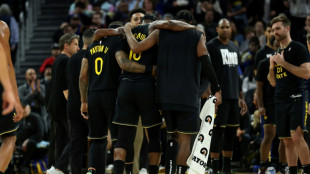 Golden State's Butler out for season with ACL injury: agent
Golden State's Butler out for season with ACL injury: agent
-
Venezuela woos US oil majors with new investment czar

-
 Wales Six Nations strike threat just 'speculation' for Tandy
Wales Six Nations strike threat just 'speculation' for Tandy
-
Syria government agrees new truce with Kurdish forces

-
 Russian interior minister in Cuba, which faces pressure from Trump
Russian interior minister in Cuba, which faces pressure from Trump
-
US finalizes rule for deep-sea mining beyond its waters
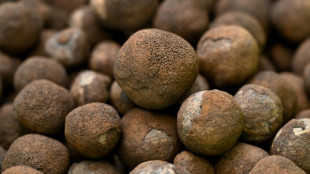
-
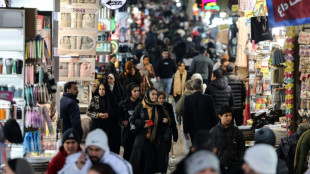 Iran protest crackdown latest developments
Iran protest crackdown latest developments
-
Muted anniversary: Trump marks first year back with familiar grievances

-
 Man City stunned by Bodo/Glimt in epic Champions League upset
Man City stunned by Bodo/Glimt in epic Champions League upset
-
Cooler temperatures offer respite for Chile firefighters
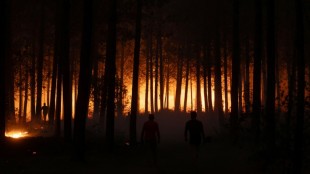
-
 Scientists plan deep-sea expedition to probe 'dark oxygen'
Scientists plan deep-sea expedition to probe 'dark oxygen'
-
Howe calls on Newcastle to use spirit of Robson to inspire win over PSV

-
 Massive US presence makes its mark on Davos
Massive US presence makes its mark on Davos
-
Ter Stegen to join Girona on loan: Barca coach Flick

-
 France PM forces part of budget through parliament without vote
France PM forces part of budget through parliament without vote
-
Scotland boss Townsend picks veterans Gray and Cherry for Six Nations

-
 Record try-scorer Penaud faces French axe for Six Nations
Record try-scorer Penaud faces French axe for Six Nations
-
UK approves plans for Chinese mega-embassy in London

-
 Rosenior keen to build winning ties with 'world-class' Fernandez
Rosenior keen to build winning ties with 'world-class' Fernandez
-
Dakar delights in Senegal parade honouring AFCON champions

-
 UK comedian Russell Brand in court on two new rape charges
UK comedian Russell Brand in court on two new rape charges
-
France set to face New Zealand with second-string squad

-
 Eyeing China, EU moves to ban 'high-risk' foreign suppliers from telecoms networks
Eyeing China, EU moves to ban 'high-risk' foreign suppliers from telecoms networks
-
Struggling Suryakumar will not adapt style to find form before T20 World Cup

-
 World stocks sink, gold hits high on escalating trade war fears
World stocks sink, gold hits high on escalating trade war fears
-
Easier said than done for US to apply tariffs on single EU states


Repentant ranchers rescuing Colombian wildlife
Two newborn pumas and a convalescing porcupine share a room in the home of the Zapata family, which has renounced livestock farming to focus on stewardship of the Colombian Amazon and its animals uprooted by deforestation.
Just over a decade ago, the Zapatas decided to change their ways, and instead of cutting back trees for pasture, plant new ones.
They sold their cows and let the jungle claim back most of their land in San Jose de Guaviare in southern Colombia.
Today, the family of three work to rehabilitate animals affected in a variety of cruel ways by humanity's encroachment on nature.
They sacrificed part of their home and backyard, where for the moment they house 60 creatures, ranging from monkeys, birds and armadillos to a spotted wild cat known as an ocelot.
"This farm was dedicated to cattle raising: 56 hectares of which only about 12 (hectares) were... forest," said Dora Sanchez, who runs the ranch-turned-reserve with husband Hector Zapata, 57, and daughter Samantha, 23.
"Little by little, my family understood that (conservation) is a good thing," the 48-year-old told AFP on the former ranch now called the Nupana reserve.
"We must preserve and protect the forest, because it is the source of life... We are one hundred percent convinced that it is the jungle" that is the future, she added.
- 'Positive effect' -
Like many others in this rural department of Guaviare, the Zapatas were attracted by the dream of making a new life in a "land without men for men without land."
When Sanchez and Zapata moved there in 1997, most of the locals were raising cattle or planting coca -- the raw ingredient of cocaine, of which Colombia is the world's main producer.
Both cattle and cocaine are jungle killers and Guaviare lost some 25,000 hectares of forest just in 2021, according to authorities.
The family raised cattle for 15 years before deciding this was no longer for them. By 2012, the last cows left the farm.
"I began to do some experiments, to set up agroforestry systems and we began to see the positive effect," said Sanchez, an agroforestry engineer by training.
"The forest began to change, the fauna began to return. We improved the water conditions and the soil began to improve."
Today, the reserve has 40 hectares of jungle, said Sanchez, and tourists visit its eco trail. Some "adopt" an animal and make monthly contributions for its upkeep.
Baby animals are cared for in the family house.
Roaming free on the property, a small grey fox and a capuchin monkey that lost a leg chase each other around playfully -- among the animals too domesticated or weak to return to the wild.
Other, more potentially dangerous creatures, must live out their days in enclosures "because they do not have the necessary skills, they cannot survive, they do not recognize that a predator can attack them," said Samantha Zapata, an agronomy student.
Some of the animals at the reserve had been confiscated from people who kept them as pets or tried to sell them.
Others were found injured or abandoned in the ever-shrinking Amazon.
The Zapatas keep the wild animals separately in cages, giving them medicine and food to get them back on their feet and hopefully back to the wild.
"There are many challenges, because each animal has its own characteristics and behavior," said Hector Zapata, adding they had learnt a lot through practical experience.
"Taking care of them, guiding them step by step to a... release, I think is one of the most difficult challenges we have."
- Learn to hunt -
Samantha bottle feeds the baby pumas with mixed emotions.
"They are very beautiful and we would normally never have been able to see them so close, but it is sad because (people) killed their mother," she said.
The cubs were rescued by the CDA environmental agency and brought to the ranch after a citizen reported them abandoned in the jungle, their eyes closed and with their umbilical cords still attached.
Locals told the CDA some farmers had been killing wild cats in the area to protect their sheep.
"At the age of four, five months we will begin to give them meat... and live prey so that they can learn to hunt and can develop naturally," said Samantha Zapata.
Hopefully, "they will not be condemned to living in a cage."
J.Horn--BTB




